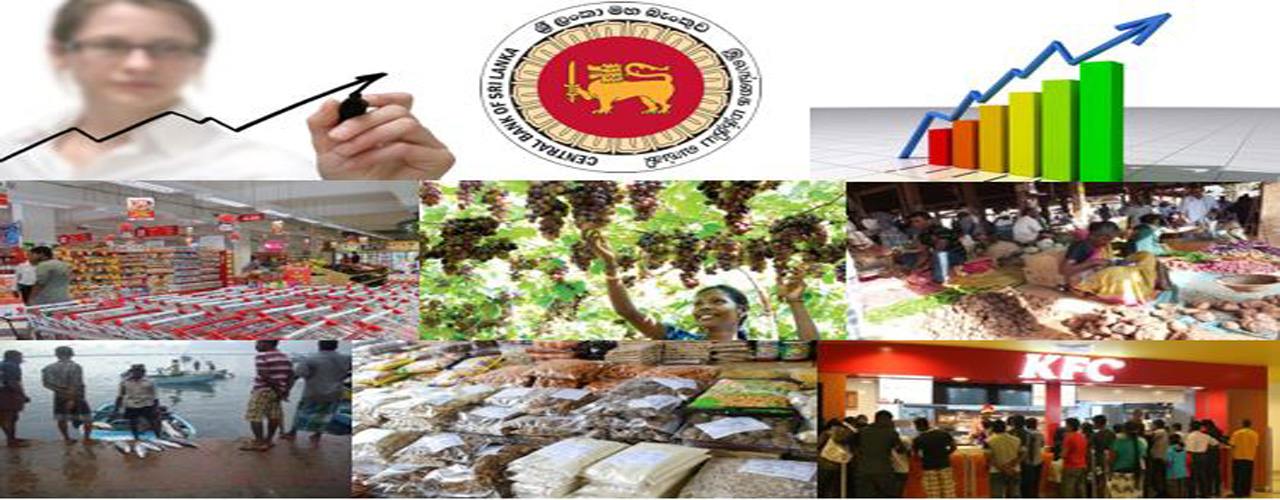Peace propels economic progress
• Former war-torn regions’ economic growth bypasses rest in 2015.
• Sri Lanka’s former war-torn Northern and Eastern provinces have emerged as the fastest growing provincial economies in the country last year, recording double digit growth with their share of the overall gross domestic product (GDP) expanding, Central Bank data showed.
• According to the Central Bank, in Northern and North Central provinces, the per capita income ratio increased while in other provinces, the per capita income ratio remained unchanged except in the Uva province.
• Meanwhile, notably the Northern Province stands atop in services sector as its contribution to the Province’s GDP is as high as 60.6% and even the Western Province stands behind it.
Though relatively small in contribution, the 2 provinces have grown their economies by a nominal 12.1% and 10.9% in 2015—a clear sign of raising its share in the mainstream economic activities in the country.
Their share in the overall economy also increased to 3.5% and 6.0% respectively, of the total GDP in 2015 from 3.3% and 5.8% in 2014.
Meanwhile, the Western Province’s share continued to slip as the growth slowed to 5.8% in 2015 from 7.6% in 2014.
The Western Province also saw its share in the GDP slipping to 41.2% from 41.7% in 2014 in a sign of gradual reduction in regional disparities but the per capita income in the province was 1.4 times of the national per capita income in 2015.
The Western Province is followed by North Western Province with 10.9%, Southern Province with 10.4% and Central Province with 10.3% contribution levels, with the former two slipping from 2014 levels while the latter’s contribution remained unchanged.
In its journey towards an upper middle income country, Sri Lanka’s main socio economic issue is identified as the extreme level of income disparity as almost 30% of the population engages in low productive agriculture which contributes less than 20% to the country’s GDP.
However, the per capita income ratio in the Western Province has declined marginally over the period of 2014 to 2015, the Central Bank said.
The agriculture sector’s contribution to the Western Province’s GDP was 1.7%, the lowest out of the lot.
In Uva, Northern and North Central Provinces agriculture accounted for 16.3%, 15% and 13.8%, respectively.
Sri Lanka’s industries suffer from high dearth of labour. As result, the policy makers are trying to import labour to bridge the lacuna, though many a time it has been pointed out that the issue as well as its solution lies within.
For instance, the excess labour in agriculture sector could be gradually diverted to high productive industry and services sectors. But the process takes time.
Meanwhile, notably the Northern Province stands atop in services sector as its contribution to the Province’s GDP is as high as 60.6% and even the Western Province stands behind it.
OSL Take:
Western Province is largely an industrialized economy with the industry sector accounting for 34.6%, the highest, but the Eastern Province stands 2nd with 31.7% contribution.
A section of the economists have long been calling for financial devolution to the provinces, allowing Provincial Councils to play a bigger role in collecting and spending the tax money, ensuring efficiency and accountability.
The USD 44 billion Western Region Megapolis Masterplan (WRMM) is slowly but steadily transforming the economy of Sri Lanka and the progress in the North is a good example of of its “electrifying effect” to the less developed regions.
For instance, the tourism industry in the North and North East has “bounced back” with new star class hotels lining up in the pristine beaches of North, and the reluctant EU visitors are back to enjoy the sun, sand and the natural hospitality of the mixed ethnicity.
OSL as the leading opportunity matchmaker is calling all potential overseas investors to register their tourism, trading and construction interest with us to participate in the country’s growth agenda now.
Feel free to ask for a consultation with the biz-friendly OSL Team to learn more.
| Article Code : | VBS/AT/08082016/Z-4 |

